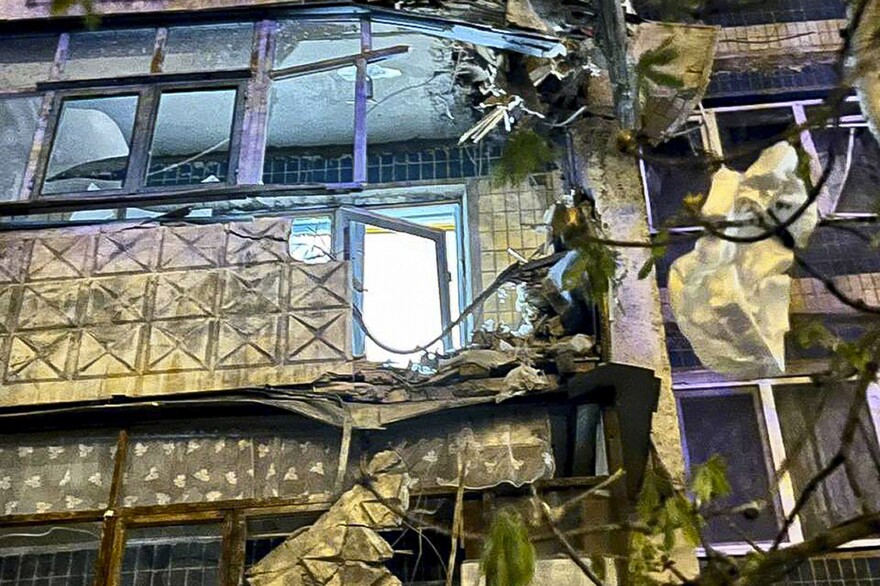Updated April 21, 2023 at 11:48 AM ET
MOSCOW — Russia's military said one of its own fighter jets accidentally bombed a Russian city near the border with Ukraine.
An Su-34 air force plane flying over the Russian city of Belgorod had an "accidental discharge" of its payload on Thursday, according to Russia's Defense Ministry.
The large resulting explosion created a 65-foot-wide crater in a central city street, damaging buildings and injuring three people. Belgorod Gov. Vyacheslav Gladkov said on the Telegram social messaging app that no one was killed.

Belgorod and other border regions have come under occasional attacks during Russia's war in Ukraine. Russia blames the strikes on Ukraine, which doesn't claim direct responsibility for them.
But Thursday's explosion in Belgorod — with a population of 340,000 about 20 miles from the Russia-Ukraine border — was reported to be more powerful than what residents had previously experienced.
Street camera footage posted on Telegram shows the initial impact of the bomb Thursday evening, which sent a massive fireball skyward just moments after several drivers had passed through an intersection.

Images later posted online showed nearby buildings with shattered windows and overturned furniture. Several parked street vehicles appeared heavily damaged and covered with debris. The impact launched one car onto the roof of a nearby shop.
Local authorities later told residents from several damaged buildings to evacuate to local hotels.
Several Russian military bloggers — an increasingly influential voice amid the war in Ukraine — initially speculated that Russian air defenses had shot down a Ukrainian-fired rocket.
Even state television appeared initially reluctant to embrace the news that the damage had been caused by one of the Russian military's own bombs.
On the Russia 1 channel, anchor Nikolai Zusik said the military had used a "modern weapon" that allowed Russian units to "eliminate extremists" near the front lines "from a minimal distance." He appeared perplexed by the text he'd just read from the teleprompter.
Russian planes have caused damage in their own country before. Last October, an Su-34 jet crashed into an apartment building in the southern Russian border town of Yeysk, killing more than a dozen people in their homes.
Copyright 2023 NPR. To see more, visit https://www.npr.org.



